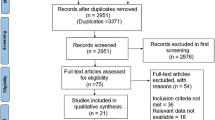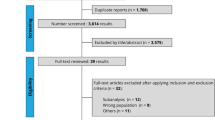Abstract
The aim of this pilot study was to compare the effect of two different regimens of aspirin dosage on platelet of coronary artery disease (CAD) diabetic patients. Twenty-five CAD diabetic patients were included. Initially, all patients received aspirin 100 mg/day for 10 days. At day 10, aspirin antiplatelet effect was determined by measuring the collagen/epinephrine closure time (CT) 2 h after the last aspirin dosage and the next morning at 8 a.m.. The aspirin regimen was modified to 100 mg twice daily for patients showing a non-optimal platelet-inhibitory effect (CT < 298 s at 8 a.m.). Persistent high platelet reactivity (HPR) was defined by a CT < 160 s. During the 100 mg/day aspirin regimen, the prevalence of HPR at 8 a.m. was 48%, and only 7 patients (28%) had showed an optimal platelet-inhibitory effect. Bridging to the twice-daily regimen, the HPR was significantly reduced (p = 0.025), and the optimal platelet-inhibitory effect was reached for 3 other patients. Our results showed that 100 mg aspirin twice-daily dosing rather than a once-daily dose significantly improves the aspirin effect on platelet of CAD diabetic patients. However, large prospective studies were needed to confirm whether this strategy will be clinically relevant and safe.



Similar content being viewed by others
References
Haffner SM, Lehto S, Rönnemaa T, Pyörälä K, Laakso M. Mortality from coronary heart disease in subjects with type-2 diabetes and in nondiabetic subjects with and without prior myocardial infarction. New Engl J Med. 1998;339:229–34.
Schneider DJ. Factors contributing to increased platelet reactivity in people with diabetes. Diabetes Care. 2009;32:525–7.
Guthikonda S, Lev EI, Patel R, DeLao T, Bergeron AL, Dong JF, et al. Reticulated platelets and uninhibited COX-1 and COX-2 decrease the antiplatelet. J Thromb Haemost. 2007;5:490–6.
American Diabetes Association. Standards of medical care in diabetes—2007. Diabetes Care. 2007;30(Suppl 1):s4–s41.
Antithrombotic Trialists’ (ATT) Collaboration, Baigent C, Blackwell L, Collins R, Emberson J, Godwin J, Peto R, et al. Aspirin in the primary and secondary prevention of vascular disease: collaborative meta-analysis of individual participant data from randomised trials. Lancet. 2009;373:1849–60.
Antithrombotic Trialists’ Collaboration. Collaborative meta-analysis of randomised trials of antiplatelet therapy for prevention of death, myocardial infarction, and stroke in high risk patients. BMJ. 2002;324:71–86.
Pulcinelli FM, Biasucci LM, Riondino S, Giubilato S, Leo A, Di Renzo L, et al. COX-1 sensitivity and thromboxane A2 production in type 1 and type 2 diabetic patients under chronic aspirin treatment. Eur Heart J. 2009;30:1279–86.
Santos MT, Vallés J, Aznar J, Lago A, Sanchez E, Cosin J, et al. Aspirin therapy for inhibition of platelet reactivity in the presence of erythrocytes in patients with vascular disease. J Lab Clin Med. 2006;147:220–7.
Angiolillo DJ, Bernardo E, Sabaté M, Jimenez-Quevedo P, Costa MA, Palazuelos J, et al. Impact of platelet reactivity on cardiovascular outcomes in patients with type 2 diabetes mellitus and coronary artery disease. J Am Coll Cardiol. 2007;50:1541–7.
Snoep JD, Hovens MMC, Eikenboom JCJ, van der Bom JG, Huisman MV. Association of laboratory-defined aspirin resistance with a higher risk of recurrent cardiovascular events: a systematic review and meta-analysis. Arch Intern Med. 2007;167:1593–9.
Addad F, Chakroun T, Abderazek F, Ben-Farhat M, Hamdi S, Dridi Z, et al. Response variability to aspirin and one-year prediction of vascular events in patients with stable coronary artery disease. J Thromb Thrombolysis. 2010;29(1):108–13.
DiChiara J, Bliden KP, Tantry US, Hamed MS, Antonino MJ, Suarez TA, et al. The effect of aspirin dosing on platelet function in diabetic and nondiabetic patients: an analysis from the aspirin-induced platelet effect (ASPECT) study. Diabetes. 2007;56(12):3014–9.
Chakroun T, Addad F, Abderazek F, Ben-Farhat M, Hamdi S, Gamra H, et al. Screening for aspirin resistance in stable coronary artery patients by three different tests. Thromb Res. 2007;121:413–8.
Angiolillo DJ. Antiplatelet therapy in diabetes: efficacy and limitations of current treatment strategies and future directions. Diabetes Care. 2009;32:531–40.
Ogawa H, Nakayama M, Morimoto T, Uemura S, Kanauchi M, Doi N, et al., Japanese Primary Prevention of Atherosclerosis with Aspirin for Diabetes (JPAD) Trial Investigators. Low-dose aspirin for primary prevention of atherosclerotic events in patients with type 2 diabetes: a randomized controlled trial. JAMA. 2008;300:2134–41.
Sacco M, Pellegrini F, Roncaglioni MC, Avanzini F, Tognoni G, Nicolucci A, PPP Collaborative Group. Primary prevention of cardiovascular events with low-dose aspirin and vitamin E in type 2 diabetic patients: results of the Primary Prevention Project (PPP) trial. Diabetes Care. 2003;12:3264–72.
Michelson AD. Methods for the measurement of platelet function. Am J Cardiol. 2009;103:20A–6A.
Crescente M, Di Castelnuovo A, Iacoviello L, De Gaetano G, Cerletti C. PFA-100 closure time to predict cardiovascular events in aspirin-treated cardiovascular patients: a meta-analysis of 19 studies comprising 3,003 patients. Thromb Haemost. 2008;99:1129–31.
Patrono C, Rocca B. Aspirin: promise and resistance in the new millennium. Arterioscler Thromb Vasc Biol. 2008;28:s25–32.
Rocca B, Secchiero P, Ciabattoni G, Ranelletti FO, Catani L, Guidotti L, et al. Cyclooxygenase-2 expression is induced during human megakaryopoiesis and characterizes newly formed platelets. Proc Natl Acad Sci USA. 2002;99:7634–9.
Abaci A, Yilmaz Y, Caliskan M, Bayram F, Cetin M, Unal A, et al. Effect of increasing doses of aspirin on platelet function as measured by PFA-100 in patients with diabetes. Thromb Res. 2005;116:465–70.
DiMinno G, Silver MJ, Cerbone AM, Murphy S. Trial of repeated low-dose aspirin in diabetic angiopathy. Blood. 1986;68:886–91.
Ridker PM, Manson JE, Buring JE, Muller JE, Hennekens CH. Circadian variation of acute myocardial infarction and the effect of low-dose aspirin in a randomized trial of physicians. Circulation. 1990;82:897–902.
Wiviott SD, Braunwald E, Angiolillo DJ, Meisel S, Dalby AJ, Verheugt FW, et al. TRITON-TIMI 38 investigators. Greater clinical benefit of more intensive oral antiplatelet therapy with prasugrel in patients with diabetes mellitus in the trial to assess improvement in therapeutic outcomes by optimizing platelet inhibition with prasugrel-Thrombolysis in Myocardial Infarction 38. Circulation. 2008;118:1626–36.
ESPRIT Study Group, Halkes PH, van Gijn J, Kappelle LJ, Koudstaal PJ, Algra A. Aspirin plus dipyridamole versus aspirin alone after cerebral ischaemia of arterial origin (ESPRIT): randomised controlled trial. Lancet. 2006;367:1665–73.
Brambilla M, Parolari A, Camera M, Colli S, Eligini S, Centenaro C, et al. Effect of two doses of aspirin on thromboxane biosynthesis and platelet function in patients undergoing coronary surgery. Thromb Haemost. 2010;103(3):516–24.
Acknowledgment
The study was supported by Tunisian Ministry of Public Health.
Conflict of interest
No potential conflicts of interest relevant to this article were reported.
Author information
Authors and Affiliations
Corresponding author
About this article
Cite this article
Addad, F., Chakroun, T., Elalamy, I. et al. Antiplatelet effect of once- or twice-daily aspirin dosage in stable coronary artery disease patients with diabetes. Int J Hematol 92, 296–301 (2010). https://doi.org/10.1007/s12185-010-0652-3
Received:
Revised:
Accepted:
Published:
Issue Date:
DOI: https://doi.org/10.1007/s12185-010-0652-3




